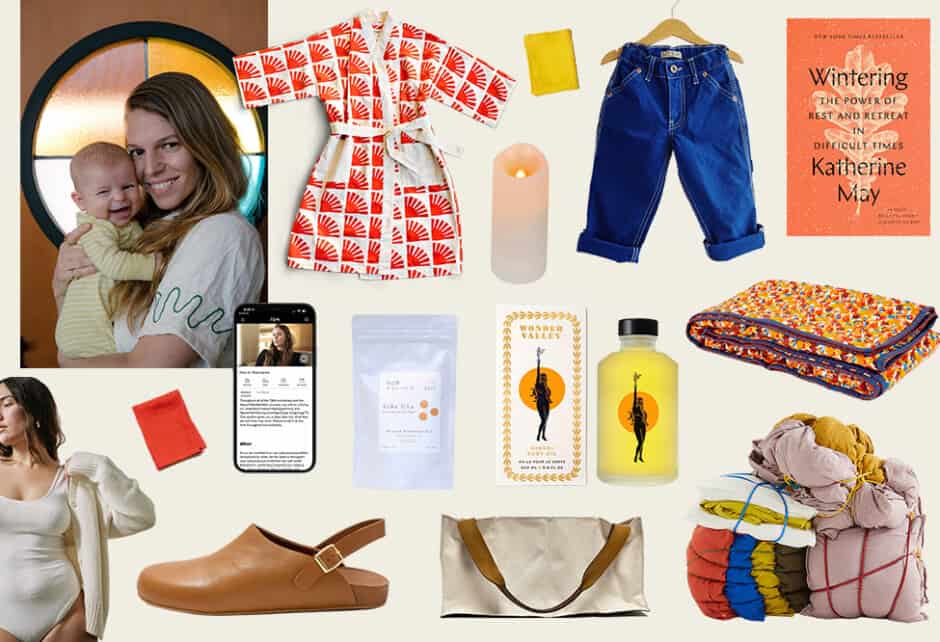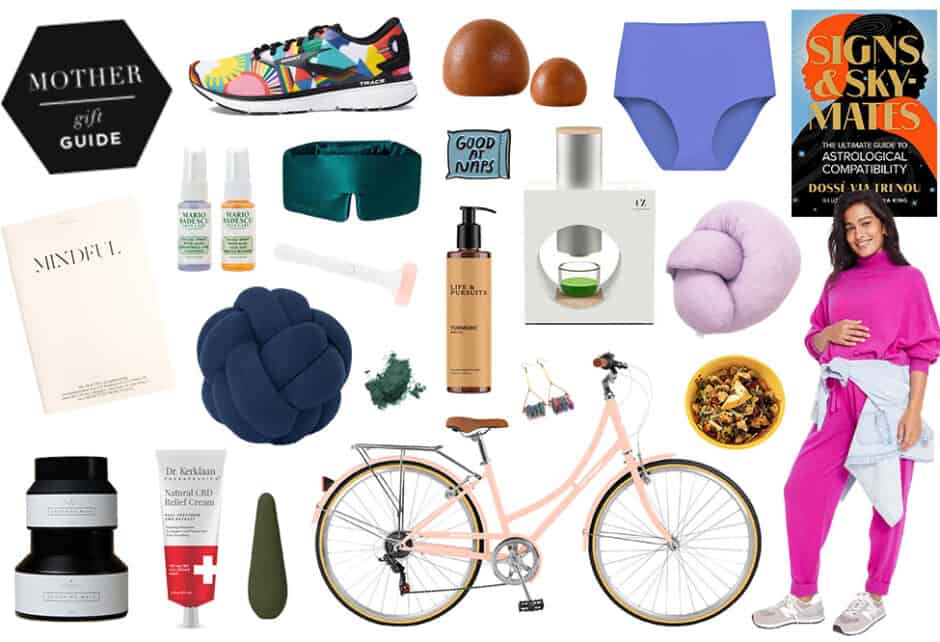
How To Deal With Postpartum Hair Loss
Written by James Kicinski-McCoy
Photography by Photo via Wool and The Gang
Postpartum hair loss. It’s something we don’t always read about in parenting and childbirth books, and it’s often something that’s virtually unheard of until you’ve experienced it first hand. That’s right, no one ever told us that after the arrival of our bundle of joy we would start to go bald and feel the sudden need to go hat shopping. If the same thing’s happened to you, we’ve tapped expert Dr. Cybele Fishman, M.D., of Integrative Dermatology in New York City, to find out why our drains are getting clogged and what we can do about it.
What causes postpartum hair loss?
“Our hair has three parts in its life cycle: Anagen, catagen, and telogen. Anagen is the growing phase, and during pregnancy, more hair than normal is in the anagen phase. That’s why all women love their hair during pregnancy. There is more of it! Then, about 3 months after childbirth (this can happen after surgery, a miscarriage, or a major fast weight loss, as well), the anagen hairs all go into telogen phase, which is the falling out part of the hair cycle. So, you will be losing way more hair than is normal. This phase lasts up to 3 months, and can be terrifying for women.”
Are there any ways to prevent postpartum hair loss?
“There is NO WAY to prevent postpartum hair loss. It is natural and happens to everyone, although to different degrees. It can be alarming, so you need to remember all those extra telogen hairs that are falling out WILL grow back. Starving yourself to lose the baby weight can make the hair shedding worse.”
Are there ways to help promote regrowth?
“Truthfully, the only thing that makes a difference is time. But make sure you are getting enough iron and protein in your diet—iron because you are more likely to lose hair if you are anemic, and protein because if you are protein deficient, you lose more hair, as well.”
Any helpful styling tips?
“I find telogen effluvium is worst in the middle-front of the scalp, so parting your hair on the side will camouflage the area where the most hair has been shed.”
What about the postpartum hair loss supplements we see on the market, do they work?
“I do like Viviscal. I wish it had bigger and better scientific studies to back it up, but I have had several patients who have had a lot of improvement on it, and sometimes I think it makes women feel that they are taking control by doing something, and that has psychological benefits. A word about Biotin—while it can make the hair shaft stronger, it does not promote new hair growth. There are no studies on Rogaine and telogen effluvium in postpartum, and I usually say avoid it unless you are not breastfeeding.”
Is postpartum hair loss permanent or is it a temporary condition?
“Temporary! It’s so hard when you start losing hair when you are just getting used to a baby, and already probably feel you don’t look your best. You need to take a deep breath and know it will get better. Having more fine baby hairs at first (called vellus hairs) is normal and common.”
Share this story




